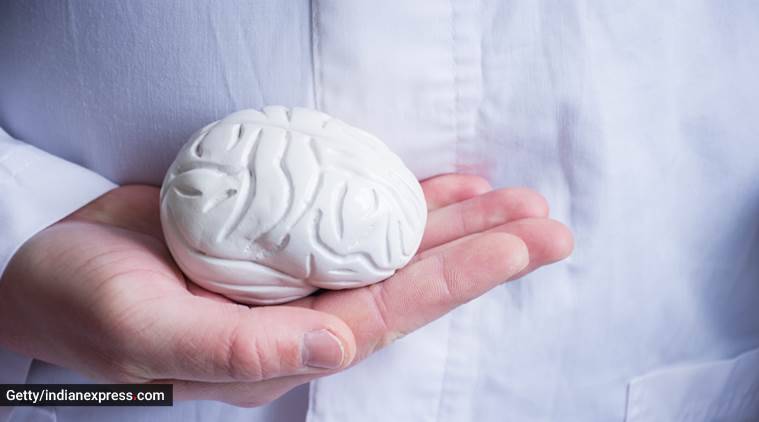📣 For more lifestyle news, click here to join our WhatsApp Channel and also follow us on Instagram
Chronic unhappiness can significantly affect your brain; here’s how
The expert explained that chronic unhappiness actually leads to changes in the structure of the brain
 Experts explain why chronic unhappiness is harmful for you (Source: Getty Images/Thinkstock)
Experts explain why chronic unhappiness is harmful for you (Source: Getty Images/Thinkstock)Everything people do in their lives is to reach the ultimate goal of utmost happiness. But, did you know that human beings are evolutionally adapted to be unhappy? That’s exactly what Dr Arvind Bhateja, Lead Neurosurgeon, Sparsh Hospitals explained in a recent video he shared on Instagram. “That’s because if we were to be happy, we would not go out hunting and we would not take care of our safety and protect ourselves from the dangers of the prehistoric times. So, our default mode in the brain is for us to be unhappy,” he said.
He further said that it is important to note that chronic unhappiness actually leads to changes in the structure of the brain and this has been shown with functional MRI studies. “There are various networks involved in the brain which are responsible for controlling thoughts, emotions, feelings, and what is known as the feeling of subjective well-being,” Dr Bhateja said.
As a result, if we don’t learn how to modulate our mood, these brain areas may actually atrophy, leading to a permanent change in the brain structure and chronic unhappiness, the expert explained.
View this post on Instagram
Agreeing, Dr Rajat Chopra, Consultant, Neurology, Narayana Superspeciality Hospital Gurugram said that the impact of chronic unhappiness on the brain is significant. “Prolonged exposure to negative emotions can lead to changes in brain structure and function. It may disrupt the brain’s reward system, reducing the ability to experience pleasure. Chronic stress associated with unhappiness can also affect the hippocampus, impairing memory and cognitive function. Furthermore, persistent unhappiness can contribute to a higher risk of developing mental health conditions such as depression and anxiety,” he said.
To avoid chronic unhappiness and mitigate its impact on brain functioning and daily activities, Dr Chopra suggested certain strategies. “Firstly, maintaining a healthy lifestyle with regular exercise, a nutritious diet, and sufficient sleep can positively impact mood and brain health. Engaging in stress-reducing activities like mindfulness, meditation, or hobbies can promote emotional well-being. Building a strong support network and seeking social connections can provide emotional support. Cognitive-behavioural therapy or counselling can help in identifying negative thought patterns and developing coping mechanisms. Additionally, practising gratitude, engaging in positive self-talk, and setting realistic goals can foster a more positive mindset,” he said.
 It’s crucial to learn to regulate your mood (Source: Getty Images/Thinkstock)
It’s crucial to learn to regulate your mood (Source: Getty Images/Thinkstock)
The expert also underlined that learning to modulate our moods is crucial for avoiding persistent or chronic unhappiness. “One effective approach is developing emotional awareness through practices like mindfulness. Cultivating positive coping strategies such as deep breathing exercises, physical activity, or engaging in hobbies can help regulate emotions,” Dr Chopra said, adding that cognitive restructuring techniques can assist in challenging negative thoughts and replacing them with more balanced and positive ones.
Dr Sonal Anand, Psychiatrist, Wockhardt Hospitals, Mira Road added that our mood is affected by our thoughts and the way we handle situations. “If we can learn how to modulate negative thoughts then mood can be improved. Many times we think only in one dimension in a limited manner which limits perspective. Change your perspective regarding that troublesome thought and your mood will become better. Sometimes medical conditions like thyroid can also affect mood. Make sure you see a doctor if the problem persists,” she said.
Concluding, Dr Chopra too suggested seeking professional help, such as therapy or counselling, to develop the skill of limiting negative thoughts. “Ultimately, self-care, self-compassion, and a proactive approach to emotional well-being are essential in modulating moods and fostering happiness,” he said.
📣 For more lifestyle news, follow us on Instagram | Twitter | Facebook and don’t miss out on the latest updates!
📣 For more lifestyle news, click here to join our WhatsApp Channel and also follow us on Instagram






- 01
- 02
- 03
- 04
- 05





















